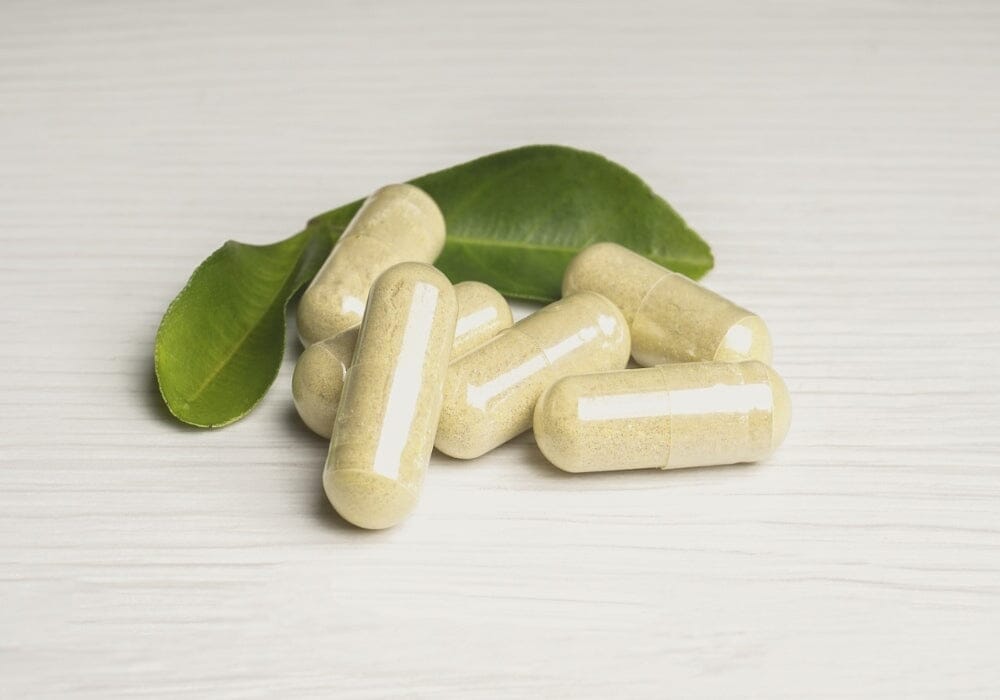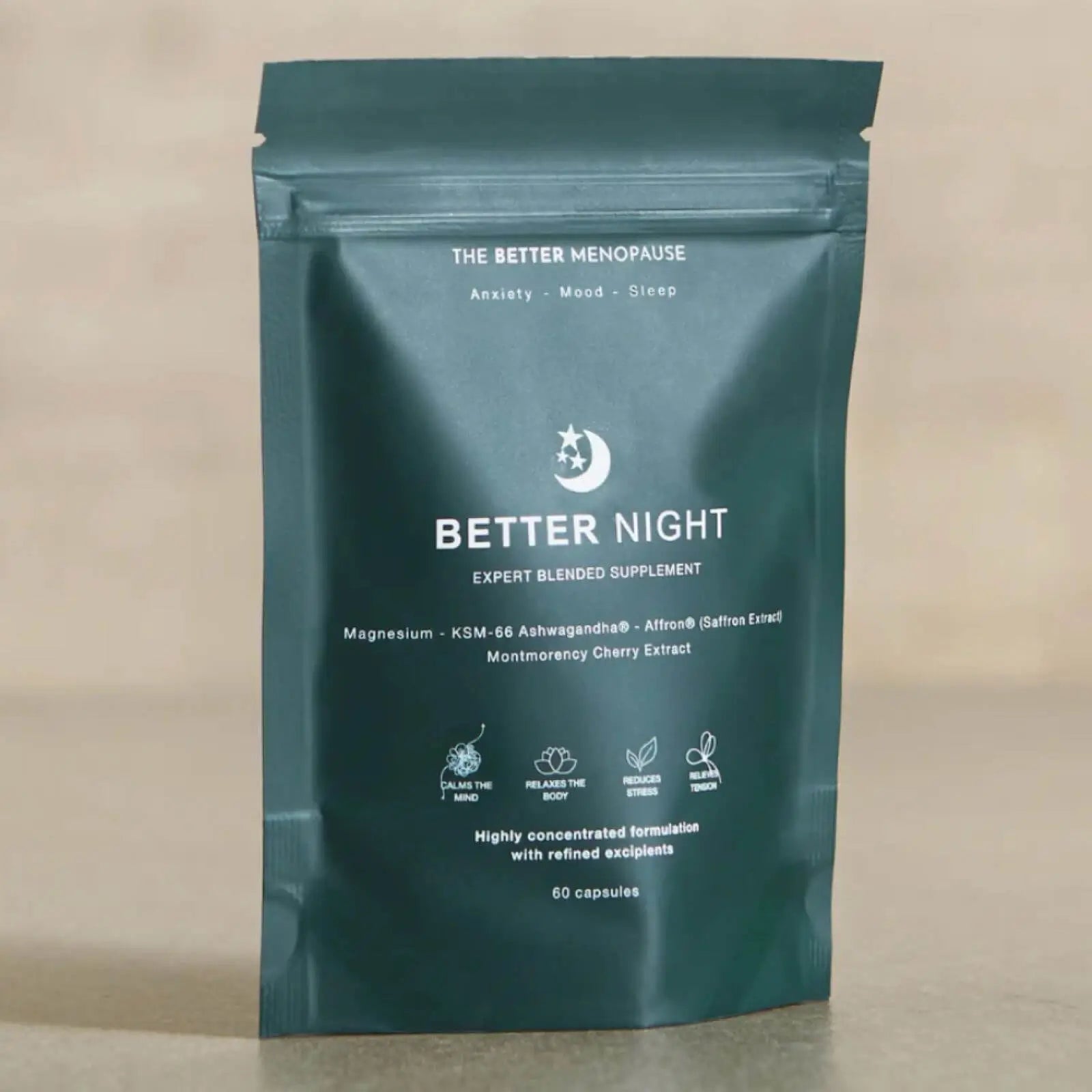
The best perimenopause supplements – and other ways to manage your symptoms
Five supplements that could bring relief from a range of perimenopause symptoms, plus lifestyle tips that can also make a difference.
Perimenopause is the period of transition that leads to menopause. As your hormone levels start to fluctuate, you may experience a variety of troublesome symptoms, and for some people supplements can help.
The best perimenopause supplement for you will depend on which issues you’re experiencing. Some supplements, such as probiotic blends, can improve a whole range of symptoms. Others may help with just one or two.
In this article, we’ll look at five perimenopause supplements, and the science behind them. We’ll also explain some other key things you can do to significantly boost your health during perimenopause and beyond.
If you’d like to join a supportive community sharing expert tips on menopause health and nutrition, why not sign up for our newsletter.
1. Probiotics
Probiotic supplements contain friendly live bacteria that may improve the health and balance of your gut microbiome. This in turn can reduce inflammation, strengthen your immune system and lead to benefits all around your body.
Researchers have identified specific strains of bacteria that can significantly improve a range of perimenopause symptoms, including:
- hot flushes and night sweats
- mood and symptoms of anxiety and depression
- brain fog and mental fatigue
- sleep quality
- bloating and constipation
- vaginal health
- bone density and osteoporosis risk
- maintaining a healthy weight
You can get all of these strains of bacteria in one award-winning daily probiotic supplement, The Better Gut.
For 10% off your first order, use the discount code WELCOME10.
2. Liquorice extract
Liquorice root is a traditional medicine with anti-inflammatory properties. Several studies suggest that taking a daily supplement containing around 1,000 milligrams (mg) of liquorice root extract can help to relieve hot flushes.
In fact, when it comes to reducing the length of hot flashes, liquorice supplements may even be as effective as hormone replacement therapy (HRT).
Research has also found that vaginal creams containing liquorice may reduce vaginal atrophy – the thinning, drying and potential inflammation of the vaginal walls.
Although liquorice supplements show real potential for helping with these perimenopause symptoms, they can have side effects, including increasing your blood pressure. So if you’re thinking of taking liquorice supplements, talk to your doctor first.
3. Curcumin
The anti-inflammatory compound curcumin is found naturally in the spice turmeric, but only in relatively small amounts. However, there’s good evidence that high-dose curcumin supplements may help some women with perimenopause symptoms including brain fog and joint pain.
One placebo-controlled study involving women with pre-menstrual syndrome found that a daily 500 mg curcumin supplement taken for a 10-day period significantly improved memory, focus and the ability to control emotional responses.
Other research suggests that curcumin supplements can help with joint pain, and may even be better than the anti-inflammatory drug diclofenac at reducing joint tenderness and swelling for people with arthritis.
4. Ashwagandha
The root of the shrub ashwagandha – also known as Indian ginseng or winter cherry – has been used in Ayurvedic medicine for thousands of years.
Recent research suggests that ashwagandha may have an impact on levels of reproductive hormones including oestrogen, which could explain its benefits during perimenopause.
Clinical trials involving perimenopausal women have found that ashwagandha may improve your mood and help with symptoms of brain fog such as mental exhaustion.
In other studies, it's been shown to reduce stress and anxiety and help you sleep better.
5. Magnesium
The mineral magnesium is involved in numerous processes around your body, ranging from digestion to emotional responses and regulating your body clock.
Studies have shown that a daily magnesium supplement can reduce hormonal fluid retention and bloating, as well as helping with anxiety and symptoms of depression.
People who consume more magnesium – through either diet or supplements – also tend to sleep longer and better.
Better Night is a menopause-focused supplement that contains both magnesium glycinate, known for its muscle-relaxing properties, and KSM-66®, the best studied form of ashwagandha.
Boosted by a range of other specially chosen herbal ingredients and vitamins, Better Night can help to calm your mind and improve your sleep.
When does perimenopause end?
Perimenopause generally begins in your 40s or 50s and lasts around 4 to 8 years, although it can be shorter or longer for some women.
Perimenopause ends when you reach menopause, the point when you haven’t had a period for 12 months. For most women, menopause happens between the ages of 40 and 58, with the average at about 51.
Although you can experience many of the same symptoms after menopause, they’re usually at their most intense during perimenopause. For some women, symptoms ease or stop after menopause.
Other ways to improve perimenopause symptoms
Some supplements can certainly help with perimenopause symptoms but there are important lifestyle changes that could also have a huge impact, as well as improving your overall health.
Eat more plants
Adding more plants to your diet, and eating as wide a variety as possible, is one of the best things you can do for your health during perimenopause. Try to include vegetables, fruit, wholegrains, nuts and seeds, and legumes like beans and pulses.
The fibre, vitamins and other nutrients in these plants will support all areas of your health. But substances called phytoestrogens could help to tackle specific perimenopause symptoms by mimicking the effects of oestrogen in your body as your natural levels decrease.
Different plants also contain different prebiotics – specialised types of carbohydrates that each act as fuel for different types of gut microbes. These friendly bacteria turn prebiotics into compounds with numerous health benefits, including reducing inflammation and regulating your immune system.
If you’re taking a probiotic perimenopause supplement like The Better Gut, eating more prebiotics may also help to boost its effects.
In one study, women experiencing menopause symptoms switched to a plant-based diet, including a daily serving of phytoestrogen-rich soyabeans. After 12 weeks, most were completely free of hot flashes and also saw significant improvements in mood, physical symptoms like joint pain, and vaginal health.
Exercise regularly
Adding moderate aerobic exercise like brisk walking to your routine three or more times a week can help with a whole range of perimenopause symptoms.
Women who took part in a 12-week study saw improvements in tingling skin, insomnia, irritable mood, joint and muscle pain, tiredness, headaches and vaginal health. They also lost weight and reduced their waist measurements.
Along with aerobic or cardio exercise, you should also try to do some form of resistance training at least twice a week as this can help to reduce muscle loss during perimenopause.
Resistance training can involve lifting weights, but also includes bodyweight exercises like squats and press-ups or using resistance bands.
Improve your sleep hygiene
Poor sleep is not only a common symptom of perimenopause, it’s also linked to other issues like depression, brain fog, low energy and stress.
Although getting better sleep is easier said than done, there are changes you can make to your bedtime habits – known as your ‘sleep hygiene’ – to improve your chances of a good night’s sleep:
- go to bed and get up at the same time each day
- don’t take naps in the afternoon or evening
- don’t watch TV or use your phone in bed
- keep your room quiet, dark and not too warm
- if you get hot flushes, keep water and a fan by your bed
- don’t eat large meals close to bedtime
- avoid caffeine later in the day
- limit alcohol
Get support
As another way of helping you cope with the stresses of perimenopause, the NHS recommends sharing your experiences with others who are going through the same thing.
Try talking to a sympathetic friend, family member or work colleague, or joining a support group.
For expert advice and inspiration on menopause health, why not sign up for The Better Menopause newsletter. You’ll also get 10% off your first order of The Better Gut probiotic menopause supplements.
Summary
If you’re experiencing unwanted perimenopause symptoms, there are some supplements that may help.
Liquorice extract may reduce hot flashes, curcumin could improve brain fog, magnesium and ashwagandha calms your mind and improves sleep, and the right blend of probiotic bacteria can ease a whole range of symptoms.
Of course, supplements aren’t the only way to boost your quality of life during perimenopause. Eating a wide variety of plants, getting regular exercise, improving your sleep hygiene and sharing your experiences with others can all play a part.
Take your first steps towards a better menopause by trying The Better Gut probiotics and the Better Night herbal, mineral and vitamin supplement.


